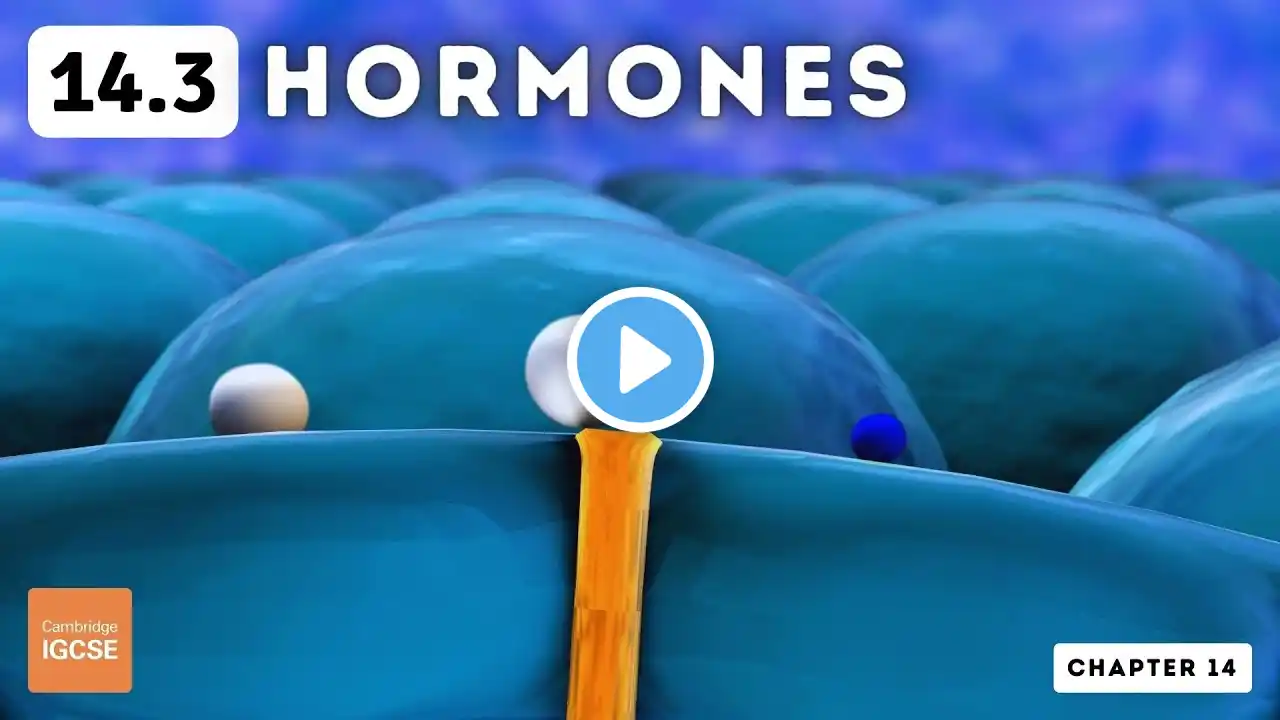
IGCSE Biology - Hormones (14.3)
🎓 IGCSE Biology - The Complete Course - https://www.tes.com/teaching-resource... 🎓 IGCSE Chemistry - / igbiocomplete ☕️ Buy me a coffee - https://www.buymeacoffee.com/ArthurJo... Cambridge IGCSE Biology (0610/0970) Chapter 14 - Coordination and response Topic 14.3 - Hormones For exams in 2023, 2024 & 2025 (core and extended) As always this video follows the Cambridge syllabus exactly and contains absolutely everything you need to know for your final exam! My other channels: @igpecompleteCambridge IGCSE PE @ocrpecompleteOCR GCSE PE Timestamps: 0:00 Contents 0:31 Hormones 1:24 Endocrine glands 1:50 Role of adrenaline 2:35 Role of adrenaline (extended) 3:17 Nervous vs hormonal control Core content: Describe a hormone as a chemical substance, produced by a gland and carried by the blood, which alters the activity of one or more specific target organs: Hormones are transported to target organs by the circulatory system. They bind to receptor proteins in the cell membrane. Identify in diagrams and images specific endocrine glands and state the hormones they secrete, limited to: (a) adrenal glands and adrenaline (b) pancreas and insulin (c) testes and testosterone (d) ovaries and oestrogen Describe adrenaline as the hormone secreted in ‘fight or flight’ situations and its effects, limited to: (a) increased breathing rate (b) increased heart rate (c) increased pupil diameter Compare nervous and hormonal control, limited to speed of action and duration of effect Extended content: State that glucagon is secreted by the pancreas Describe the role of adrenaline in the control of metabolic activity, limited to: (a) increasing the blood glucose concentration (b) increasing heart rate






